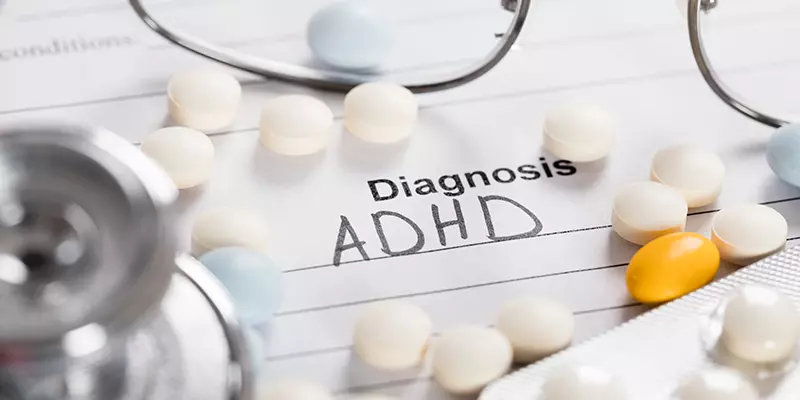What Happens When You Don t Have Adhd but Take Vyvanse Continuously

If you are being treated or are going to be treated for ADHD, it is important to look at a study released last week by the journal PLOS One. For many patients, the popular ADHD medication methylphenidate (Ritalin) has been shown to have both positive and negative effects. This study shows that treatment with methylphenidate increased the amount of dopamine transporters in the brain by 24% over the course of just one year of use. Likely, this is not a good thing.
How Can Ritalin Make ADHD Worse?
Dopamine is the brain chemical largely thought to be responsible for reward-motivated behavior, and ADHD is often associated with low dopamine activity. In your brain, synapses are the places where neurotransmitters like dopamine stimulate action. Dopamine transporters are responsible for clearing dopamine from the synapse into surrounding cells once the dopamine has "fired" its signal. The more quickly dopamine gets cleared from the synapse, the less dopamine is available to do its work. Methylphenidate gets results by blocking dopamine transporters, giving your brain more opportunity to get the benefit of the dopamine.
You don't want excessive amounts of dopamine transporters hanging out in your brain, or whatever dopamine you do have gets cleared quickly.
This study, done by noted neuroscientists Gene-Jack Wang and the National Institutes of Drug Abuse Director Nora Volkow and others, dealt with adult sufferers of ADHD who had never before been treated with medication.
They took 18 never medicated ADHD adults and did PET scans on them before and one year later. They compared the ADHD adults to 12 normal control subjects, also scanned at baseline and then a year later. The ADHD subjects treated with the drug showed a 24% average increase in dopamine transporters, while the control subjects showed no increase in transporters.
It appears that while methylphenidate is blocking the transporters, it's also somehow inspiring the multiplication of them. Imagine, then, what happens to the person with ADHD who wants to stop taking medication. He or she may be even more vulnerable than before taking medication.
ADHD/ADD & Medication
There is a lot to learn, and clearly ADHD medications have long term benefit for many. However, it brings into sharp relief the reality that we ought to be cautious in the prescription and use of pharmaceuticals in the treatment of any condition of the brain, including ADHD.
The reality is that ADHD is for the most part being treated with too much medication and not enough case-by-case understanding.
Shortly after I began brain SPECT imaging work over thirty years ago, I realized that ADHD is not a single or simple disorder. There isn't just one brain SPECT pattern for sufferers of ADHD. It took me several years and thousands of scans to identify at least seven unique SPECT patterns in ADHD patients, each of which ought to be treated differently.
If you had chest pain, your doctor would go through a series of diagnostics to discover the exact nature of it before prescribing you any medication or suggesting any procedure. In my experience, ADHD should be approached with the same attitude of caution, discovery, thoroughness and sensitivity. One treatment does not fit every ADHD patient!
Have you ever discontinued use of Ritalin or other stimulants for the treatment of ADHD, only to find symptoms return?
ADD is a complex medical condition that cannot be summed up by simple, blanket statements. These ADD myths attempt to oversimplify and stigmatize individuals with ADD. The truth about ADD is that given effective treatments, support, and strategies for overcoming challenges, individuals with ADD, can and do, thrive. If you are in need of support for yourself or a loved one with ADD, contact us today at 888-288-9834 or visit us online.
Source: https://www.amenclinics.com/blog/is-your-adhd-treatment-making-you-worse/
0 Response to "What Happens When You Don t Have Adhd but Take Vyvanse Continuously"
Postar um comentário